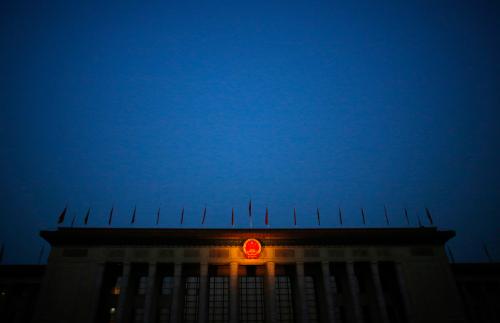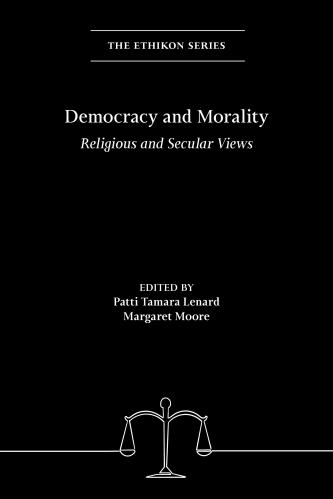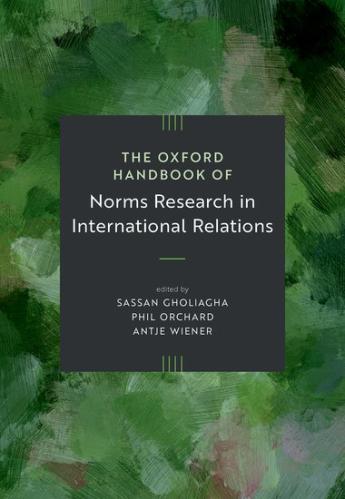Executive Summary
 In May 2018, Malaysians elected a new coalition to power, putting an end to 61 years of a single party’s de facto monopoly on power. Two years later, the democratization many expected has yet to materialize. Structural and contextual factors have plunged the country in a political crisis alongside the health crisis of the COVID-19 pandemic. While the pandemic has been relatively well-handled, it has created a unique climate of emergency, uncertainty, and fear. These extraordinary twin crises are shaking Malaysia’s fragile democratic equilibrium, creating new political opportunities and failures that could lead to another change in government. General elections are expected in early 2021. Meanwhile, the democratic reforms many anticipated have been put on hold. This paper explores Malaysia’s domestic politics and its recent democratic struggles, as well as their implications for U.S. foreign policy.
In May 2018, Malaysians elected a new coalition to power, putting an end to 61 years of a single party’s de facto monopoly on power. Two years later, the democratization many expected has yet to materialize. Structural and contextual factors have plunged the country in a political crisis alongside the health crisis of the COVID-19 pandemic. While the pandemic has been relatively well-handled, it has created a unique climate of emergency, uncertainty, and fear. These extraordinary twin crises are shaking Malaysia’s fragile democratic equilibrium, creating new political opportunities and failures that could lead to another change in government. General elections are expected in early 2021. Meanwhile, the democratic reforms many anticipated have been put on hold. This paper explores Malaysia’s domestic politics and its recent democratic struggles, as well as their implications for U.S. foreign policy.
Introduction
Malaysia has been a carrefour of civilization, culture, and religion and a strategic route on the Maritime Silk Road since the 6th and 7th centuries. Its society is diverse, including large minorities of Chinese and Indians whose migration goes back as far as the 15th century as well as indigenous peoples, the majority of which inhabit the two states of Borneo, in East Malaysia. Roughly 60% of the population practices Sunni Islam but other religions are also highly represented.
The United Malay National Organisation (UMNO), a Malay nationalist party, ruled Malaysia continuously from independence to 2018. Most political parties are ethnically and/or religiously based. Religion is highly politicized, which regularly results in tensions and occasional, mostly politically orchestrated sparks of violence. Despite this, Malaysia remains a relatively peaceful country and an important strategic partner to the United States for trade and strategic cooperation in a highly sensitive regional context.
The 2018 victory of an opposition coalition raised hopes in democratic reforms after 61 years of single-party rule. However, the new government failed at reforming a system embedded in an old political culture of patronage and lasted for only 21 months.
Malaysia is a hybrid regime oscillating between democratic institutions and authoritarian practices, considered “partly free” by Freedom House. Several laws have been designed to control the public space and suppress dissenting voices in the opposition and the media. The 2018 victory of an opposition coalition raised hopes in democratic reforms after 61 years of single-party rule. However, the new government failed at reforming a system embedded in an old political culture of patronage and lasted for only 21 months. The new ruling coalition (Perikatan Nasional, or PN) that took power in March 2020 has revived a more Malay-oriented agenda. In the context of the COVID-19 pandemic, the PN government led by Prime Minister Muhyiddin Yassin has prioritized health and economic measures rather than deep reforms. The opposition coalition (Pakatan Harapan, or PH), led by Anwar Ibrahim, is in limbo. In the last few months, Anwar, a former democratic icon jailed twice on sodomy charges, has lost credibility as a potential prime minister in the eye of his allies, who are now asking for his resignation. Mahathir Mohammad, who after two decades ruling Malaysia under the UMNO flag (1981-2003) switched to the opposition in 2016 and won the election in 2018, is still eyeing the top job in the next general elections, at age 95. The unending feud between the two men, Anwar and Mahathir, further destabilizes a fragile political equilibrium.
Recent developments: Chaotic politics and the difficulty of democratization
The fall of the Mahathir government
In May 2018, after a fierce campaign, Mahathir Mohammad’s coalition Pakatan Harapan (the Pact of Hope, or PH) won Malaysia’s general elections. Mahathir, who had ruled over the country for more than two decades starting from 1981, resigned in 2003, promising to never come out of retirement. In spite of this promise, Mahathir made an unexpected comeback in his nineties, reuniting with his former rival Anwar Ibrahim to topple then-Prime Minister Najib Razak, who was embroiled in the 1MDB financial scandal, and the ruling United Malays National Organisation (UMNO). Since their loss of power, Najib and other UMNO leaders have been charged on several accounts of abuse of power, corruption, and misappropriation of state funds. Najib was sentenced to 12 years in prison in July 2020, a decision which he is currently appealing.
During the campaign, with Anwar’s blessing, Mahathir had taken over the leadership of Anwar’s democratic movement (Reformasi) while the latter was in jail. In exchange, Mahathir had promised: (1) he would deliver the victory the movement had fail to achieve since its creation in 1998, (2) upon victory, he would release Anwar Ibrahim, and (3) he would hand leadership of the government to Anwar within a few years. Mahathir delivered on his first two promises — an electoral victory and the release of Anwar — but over the course of 2019, the old leader seemed more and more reluctant to hand over power to his ally.
Anwar’s mounting pressure on Mahathir’s government, and the growing divisions this created in both Anwar’s party (Keadilan) and in the government coalition precipitated Mahathir’s resignation in January 2020. A few weeks later, to end the feud between Anwar and Mahathir, the country’s monarch appointed a third man to replace Mahathir: Muhyiddin Yassin.
Muhyiddin, then vice president of Bersatu, a party he had created with Mahathir and his son Mukhriz Mahathir in 2016, became prime minister in March 2020. He had previously served as a loyal deputy for both Mahathir and Najib Razak, occupying several ministerial posts before rising to the position of deputy prime minister and ultimately resigning in 2015 after voicing concerns regarding Najib’s role in the 1MDB financial scandal.
The Muhyiddin government and UMNO’s return: Containing the waves of multiple crises
Muhyiddin Yassin now faces multiple crises: political instability, a health crisis, and a looming economic recession. In the midst of these storms, the premier is also struggling with continuous challenges from opposition political leaders as well as those within his own camp.
In March 2020, Muhyiddin formed a Malay majority government with the support of a coalition that includes the former ruling party UMNO and the Islamist Party (PAS). The new opposition was then composed of the Pakatan Harapan (PH) including the ethnic Chinese-based DAP (Democratic Action Party), Anwar’s Keadilan, and the Bersatu faction who chose to remain faithful to Mahathir. Keadilan suffered a tremendous loss with the departure (and purge) of some top leaders who pledge allegiances to the new government.
Despite their historic loss in 2018, UMNO, now led by Zahid Hamidi (who has also been accused of corruption) is steadily regaining its political influence. The party currently occupies key ministerial positions in Muyhiddin’s cabinet and 38 of 222 seats in the parliament, making it the most powerful party in the ruling coalition with the strongest political machinery, a factor which helped to deliver the coalition its recent victories. In July, Najib was sentenced to 12 years jail on different counts of corruption, a decision he appealed to the higher courts. While outsiders might expect that Najib’s popularity would have crashed, he is in fact slowly rebuilding his image and inventing a new narrative. “Bossku” (My Boss), as his supporters colloquially have named him, is still a major player. Despite UMNO’s deep factionalism, and the fact that Najib has yet to regain the support of the party’s entire leadership (and he might not), the talented tactician is paving his way back to power.
Political uncertainties and power plays
The path forward for Malaysia’s democracy remains unclear. On September 23, Anwar Ibrahim announced he had the necessary parliamentary majority to unseat Prime Minister Muhyiddin, a declaration he made without showing any proof to the public or giving any warning to his allies. Anwar had made similar claims in the past. In each case, his assertions ultimately proved unfounded, as they did in this case as well. While Anwar’s prophecy of power did not materialize, the chaos it created for Malaysian democracy sent tremors through the entire country. The coalition is now in limbo and some of its leaders are calling for Anwar’s resignation.
Mahathir is also actively pursuing power, attempting to create a political front led by his new party, Pejuang. Though 95 years old, he recently announced his intent to run in the next election (possibly 2021). As for Muyhiddin, he remains in a vulnerable position, pressured from within by his own coalition allies (mostly UMNO) as well as by the opposition.
Understanding the larger picture of Malaysian politics
In reviewing the twists and turns of Malaysia’s recent domestic politics, a few key trends deserve to be highlighted.
Mahathir’s successful reinvention from autocrat to democrat in the 2018 campaign suggests that Malaysians voters in general remain conservative and unlikely to call for a new generation of leadership despite the controversies of the past.
The silence of a new generation and the resilience of old leaders. While younger democratic leaders have emerged elsewhere in Southeast Asia, this is not the case in Malaysia, where Malaysian voters appear more willing to trust older leaders and father figures. Najib, Anwar, and Mahathir have been at the forefront of Malaysia’s political scene for decades and a new generation of leaders has not yet emerged. Mahathir’s successful reinvention from autocrat to democrat in the 2018 campaign suggests that Malaysians voters in general remain conservative and unlikely to call for a new generation of leadership despite the controversies of the past.
The (non-)impact of other democratic movements in the region. Democratic movements in Hong Kong and in Thailand have had limited impact in Malaysia. This may be partially explained by the absence of a coordinated, nonpartisan youth movement (as noted above). The new youth party (Muda) created by former Minister of Youth and Sport Syed Saddiq has not received the attention some had hoped, nor is it clear this party would be independent from Malaysia’s longtime power brokers. The party is an offspring of Mahathir’s new movement, and Syed remains a fervent supporter of the former premier.
The role of the monarch. While the status of royalty is under threat in Thailand, the Malaysian king, Sultan Abdullah Sultan Ahmad Shah, is subtly crafting a new role to himself, far from the political tradition and his constitutional prerogatives. In this highly volatile political context, the king is portraying himself as a neutral arbitrator and a guarantor of stability.
COVID-19 adds further stress. Malaysia’s unstable governance has added to the economic challenges caused by COVID-19, pushing Malaysia into a recession that will leave an impact throughout 2021. The partial lockdowns caused by the pandemic are increasingly contested, creating further tensions between Malaysians and their government. In some cases, these lockdowns, such as the one in Selangor, seem to have been used a way to means of asserting government strength and preventing further political instability. The prime minister has announced he will call for a general election as soon as the pandemic has ended, but this delay is perceived by many merely as a strategy to contain the opposition’s disaffection and the instability within his own government.
Policy implications and recommendations
Better understanding the politics on the ground
Malaysian politics are admittedly complex, even for close observers. One of the problems this causes is that outside observers including U.S. policymakers can often make misguided assumptions about the more important factors shaping Malaysian democracy.
Two examples come to mind: the “China factor” and civil society. For most Malaysians, the question of China’s influence over domestic issues is perceived as quasi-irrelevant. For many, the question of Western (and specifically American) interference and support for civil society groups is a bigger concern. Many Malaysians share a general suspicion of superpowers — whether the United States or China — that transcends simple dichotomies such as a preference for democracy or illiberalism.
Outside observers can also overestimate the impact that civil society can exert on Malaysian democracy. Observers often overlook the fact that (1) few Malaysian non-government organizations (NGOs) and civil society organizations (CSOs) are independent; most are partisan and politically obedient; (2) several large CSOs are in fact umbrella organizations for militants or political proxies that have been paid to mobilize voters; (3) the influence of CSOs are limited; most of Malaysia’s most impactful reform movements have been led or supported by political parties or politicians (ie: the Reformasi movement in 1998 and the Bersih movement since 2007). As such, any real movement for change in Malaysia will have to be a political one.
Civic/democratic education, journalist training, and social sciences research
Because Malaysia’s civil society lacks strength and independence, external support to CSOs needs to be made with more diligence, as it is sometimes directed at the wrong organization or short-sighted initiatives. Long-term initiatives targeting youth civic education are urgently needed in both English and vernacular languages. General knowledge about democratic values is poor in Malaysia and the universality of these values is sometimes contested. There is also a need for more civic education focused on equal rights (gender, sexual orientation, ethnicity, etc.), and the inclusion of minorities and vulnerable populations that often remain outside of the Malaysian policy debates and are ignored in the general discourse on democracy.
Malaysia’s democracy would also benefit from stronger support for outside voices such as journalists and academic researchers. Malaysia’s low levels of civic awareness and the absence of public debates about democratic principles is partly due to censorship and self-censorship, but also to the limited training offered to journalists and/or political commentators. New media are attempting to bridge academia and journalism, like New Naratif, but their existence remains fragile due to both political and economic pressure.
In Malaysian academia, while there are researchers conducting excellent research, they often lack external funding. This dependance on public funds tends to subject them to administrative and political constraints.
Conclusion
Despite its political uncertainties, Malaysia remains a stable partner for the United States in Southeast Asia. For that reason, constant analysis and anticipation of Malaysia’s domestic political developments based on solid on-the-ground research is key. The looming economic crisis and the political chaos provoked by party rivalries and ego fights have thus far stymied all attempts at reform. The next few months, and particularly the coming election, will be crucial to determine the future of democracy in the country.
-
Acknowledgements and disclosures
Ted Reinert edited this paper.
The Brookings Institution is committed to quality, independence, and impact.
We are supported by a diverse array of funders. In line with our values and policies, each Brookings publication represents the sole views of its author(s).









Commentary
Democratization on hold in Malaysia
January 22, 2021